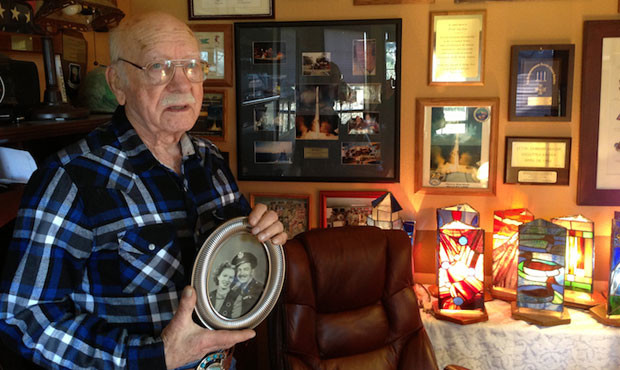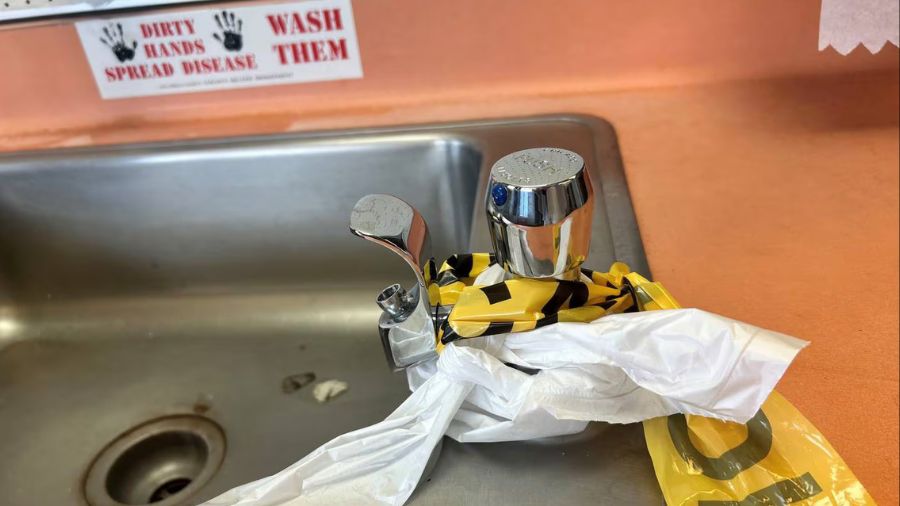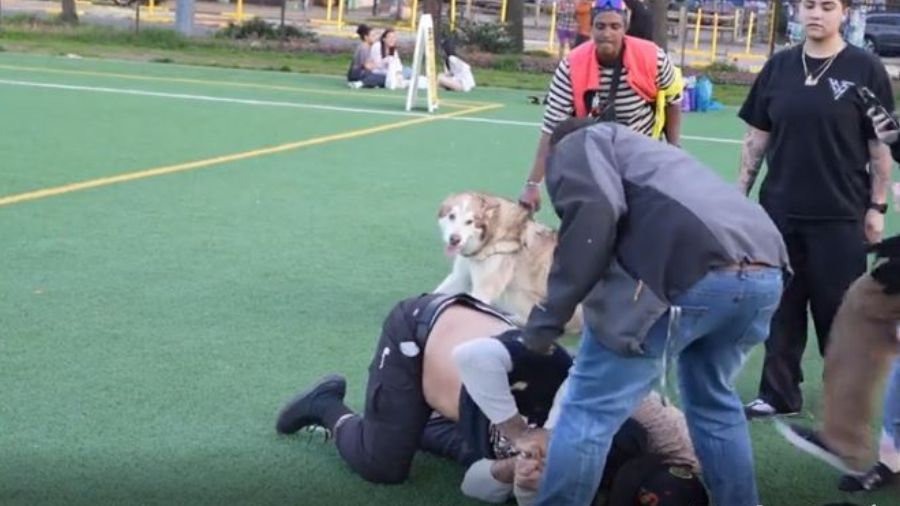Why Vancouver BC is investing even more in safe injection sites
Jan 17, 2018, 5:55 AM | Updated: 7:51 pm

A mural encourages people to pick up the overdose antidote Narcan at a nearby "safe injection site" on the east side of downtown Vancouver, Canada. (AP Photo/Jeremy Hainsworth)
(AP Photo/Jeremy Hainsworth)
While Washington communities preemptively ban safe injection sites, their neighbor to the north is expanding its efforts to provide more facilities and even government-backed drug alternatives to the illegal supply.
“I believe that to engage people in care and supply them with safe drugs is the first step to recovery for many people,” Dr. Mark Tyndall told KIRO Radio’s Dave Ross.
“We’ve really tried to scale things up and look at things differently the last two or three years as the explosion of overdose deaths happened,” he said.
RELATED: Seattle to spend $2 million on drug facility
Dr. Tyndall is executive director of British Columbia’s Center for Disease Control and a professor of medicine at the University of British Columbia. He has been involved with the region’s harm reduction efforts since the 1990s, and he helped open Vancouver’s famous Insite safe injection site in 2003.
While many critics and proponents have focused on the Insite location in Vancouver’s Hastings neighborhood, there are far more similar facilities in the region. And more are on the way. There are about six safe injection sites in Vancouver, Tyndall notes. And there are about 20 overdose prevention sites throughout the province.
Still, Tyndall said that more than 1,400 people died from overdoses in 2017, an increase from 1,000 in 2016. There were more than 20,000 overdose calls in 2017.
Safe injection sites
Tyndall says that the data collected over the years in BC shows that the safe injection approach works. After someone overdoses at an injection site, there is staff to offer substitution therapy, housing, etc.
“We have great data from all the work we’ve done at Insite showing it’s an extremely effective way to connect with people, and these other sites are extremely busy,” he said. “So a lot of people who would be isolated and using their drugs, and in this environment dying by themselves, now have a place to go to connect and there are many overdoses that have been reversed at these sites across the province.”
The primary goal of the sites is to prevent deaths, which has been criticized in the past by those who argue treatment should be a top priority.
“It’s a pretty naïve expectation that people arrive at a site and are so-called cured of their addictions,” he said, further arguing that if an addict isn’t ready to make a change, they will not be successful. In the meantime, injection sites will keep them alive.
“We really need to be compassionate and give people opportunities, and provide a lot of support,” Tyndall said. “I strongly believe that allowing people to come forward and use their drugs under supervision is a good first step for a lot of people.”
Prescription opiates
Another emerging tactic to fight the opioid epidemic in British Columbia is providing a substitute to illegal heroin. Vancouver’s Crosstown Clinic has run trials for about eight years, providing prescription heroin to addicts. Participants were offered either heroin or hydromorphone, which is similar. Tyndall said a study showed that addicts cannot tell the difference between the two drugs. The pills are provided to addicts and then used like heroin — crushed, injected, etc.
“We are expanding some of that as we speak across the province,” Tyndall said. “So there is a real move to give other people opportunities to do that. The problem is, though, in this particular overdose epidemic, this is an expensive and intensive program. For many people, they are not wanting to be that medicalized that they have to go to a clinic three times a day and see a nurse, and do their injections.”
Tyndall wants to study hydromorphone further. The argued benefit of the government-provided drugs is similar to safe injection sites — addicts stay alive long enough to get to the point they want treatment.
“What they are taking now is almost all fentanyl … and other derivatives,” Tyndall said. “The whole landscape has changed dramatically over the last 2.5 years. In Vancouver, it was always possible to get fairly high-grade heroin. People could overdose on heroin, but most people knew what dose they were getting … overdoses occurred but weren’t that common. Now, everything has changed and every injection or inhalation, it’s a form of Russian roulette people are playing. To me, it’s not good enough to tell people that if you don’t want treatment, all you can do is go to the alley to get more of this poison and probably die.”
Medically, not criminally
Vancouver’s approach is part of a move to treat the opioid epidemic as a medical concern, not a criminal issue. Doctors like Tyndall argue that the criminal justice system and prohibition failed to adequately fight drugs, even before the modern crisis.
But that can be a controversial stance. Tyndall would prefer that opioids are provided as easily as marijuana is in states where recreational use is legal.
“That would be my goal,” he said. “When it gets down to what we’ve done with prohibition and how we’ve created this horrible environment for people self-medicating, trying to get by, we label them as criminals, hunt them down and throw them in jail. This is obviously not the best way to go about this. If we accept this as a medical condition … we need to deal with the drivers of how they got there in the first place, but in the meantime, we make sure they aren’t dying of fentanyl overdoses.”













